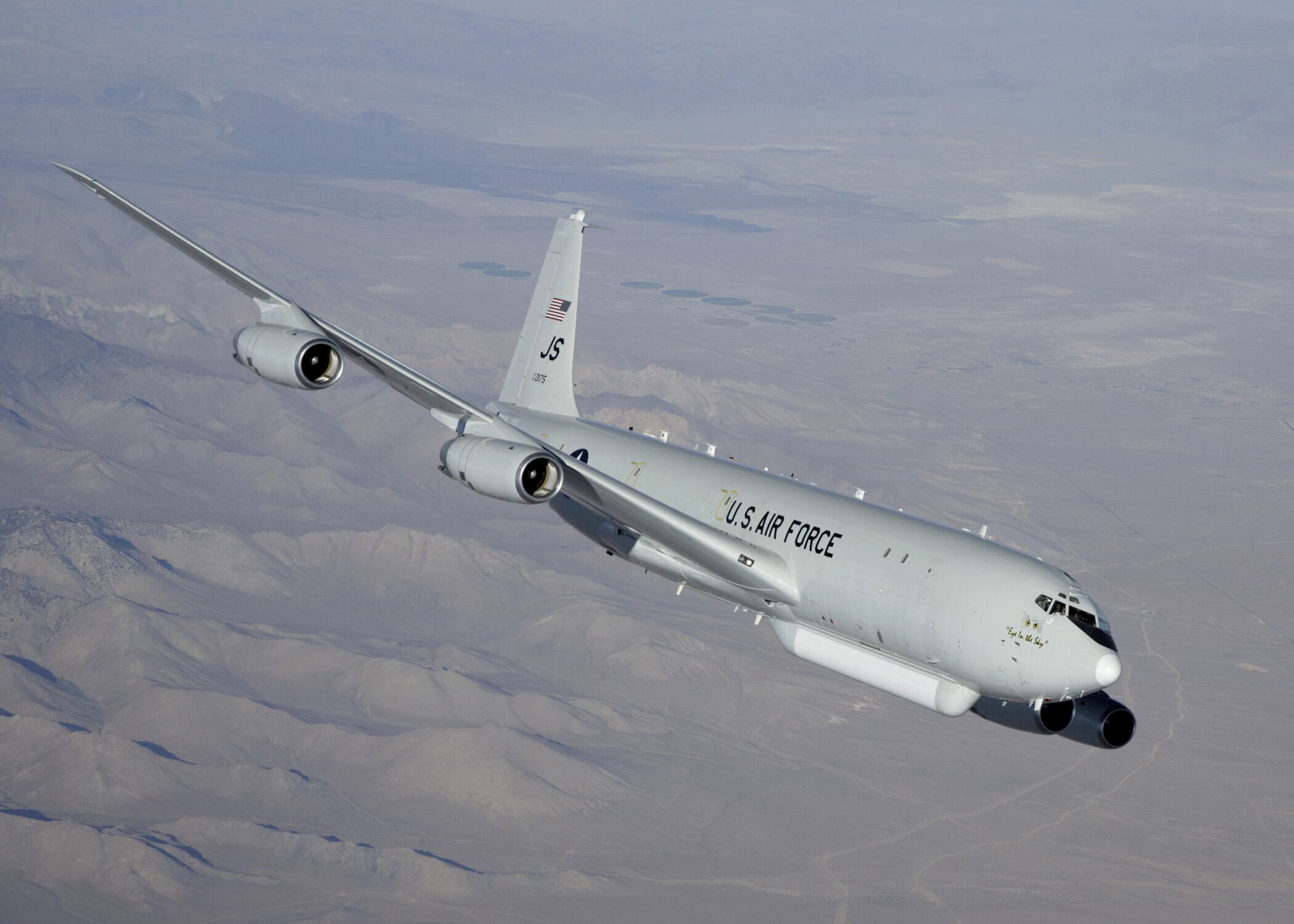WASHINGTON—The future of the JSTARS recap program appears to be in limbo as the U.S. Air Force reevaluates the path forward for replacing its aging battle-management surveillance system.
In a Sept. 8 letter to Defense Secretary Jim Mattis, members of Georgia’s congressional delegation expressed concern about the potential cancellation of the JSTARS recap program, which seeks to replace the Air Force’s inventory of E-8 aircraft used for ground surveillance as well as command and control.
“[W]e were recently informed that the Air Force wishes to explore alternate intelligence and surveillance platforms instead of continued pursuit of the recapitalization of the E-8C Joint Surveillance Target Attack Radar System (JSTARS) fleet,” wrote Sens. Johnny Isakson and David Perdue, and Reps. Austin Scott, Sanford Bishop and Tom Graves.
“While the rationale has not yet been made known to us, cancelling or delaying would be ill-advised and directly impact our combatant commanders who employ this asset in theater,” they wrote.
In a response to Defense News, the Air Force said it continues to move forward with source-selection efforts for the JSTARS recap, but left the door open on whether the program would be canceled in the fiscal 2019 budget and resurrected in a different form.
“The Air Force remains in source selection for a follow-on to JSTARS as we continue to evaluate alternative approaches for battlefield command and control that could be more effective in high-threat environments,” spokeswoman Capt. Emily Grabowski said in an emailed statement.
“In the meantime, we plan to continue to continue flying the current JSTARS fleet through fiscal year 2023. Although we are exploring options, there are many steps still to be taken before any force structure proposals are included in the FY 2019 budget.”
Just hours after the Air Force acknowledged it was reviewing its options, Perdue and Isakson introduced an amendment to the Senate version of the FY18 defense authorization bill on Tuesday afternoon. If adopted, the language would prohibit the service from cancelling the JSTARS recap program unless the defense secretary certifies that the new approach would not result in a capability gap.
It also would keep the Air Force from using FY18 funding to retire the existing E-8 fleet.
The Senate is currently debating the defense bill on the floor, but leaders have not determined which, if any, amendments will be up for consideration.
The JSTARS recap program, which was once called the fourth-largest aircraft modernization priority by former Air Force Chief of Staff Gen. Mark Welsh, began as a way for the service to quickly replace rapidly aging aircraft that were seen as having little service life left.
Three companies — Lockheed Martin, Boeing and Northrop Grumman — are competing for the prime contractor spot, while both Northrop and Raytheon are building sensors that could be integrated on board any JSTARS recap variant. Each prime contractor has also been joined by a large team of defense industry heavy hitters: Lockheed partnered with Bombardier, Raytheon and Sierra Nevada Corp.; Northrop teamed up with Gulfstream and L3 Technologies; and Boeing has opted to keep its partners private.
RELATED

After later studies showed that the legacy JSTARS fleet had a longer lifespan than previously anticipated, questions began emerging about whether the JSTARS recap was the right answer.
In the Air Force’s Air Superiority 2030 study released last year, the service said it would move forward with an Advanced Battle Management System analysis of alternatives in 2018. This AOA would explore “options for non-traditional concepts including networking planned and purpose-built sensors into architectures that enable BMC2 [battle management, command and control] functions in the highly contested environment” — perhaps laying out the groundwork for the service to cancel the JSTARS recap and begin acquiring a more advanced, disaggregated system.
The Georgia delegation dismissed this work as a waste of time and money. Congress has already spent more than $265 million on the JSTARS recap program, the lawmakers wrote.
“[I]n recent history there has been no less than five studies to look at alternatives,” they added. “All have resulted in the same answer: the JSTARS recapitalization program that is currently underway.”
Although the Air Force plans to operate the legacy JSTARS through the early 2030s, Isakson, Perdue, Scott, Bishop and Graves expressed concern that a capability gap would result if the JSTARS recap is canceled and a new program is started.
“Another analysis of alternatives would surely lead to an even greater capabilities gap that would be devastating to our troops on the ground and our nation’s ability to meet operational requirements,” they wrote.
Updated on 9/12/17 at 12:34 EST with information about amendments to the NDAA.
Valerie Insinna is Defense News' air warfare reporter. She previously worked the Navy/congressional beats for Defense Daily, which followed almost three years as a staff writer for National Defense Magazine. Prior to that, she worked as an editorial assistant for the Tokyo Shimbun’s Washington bureau.








